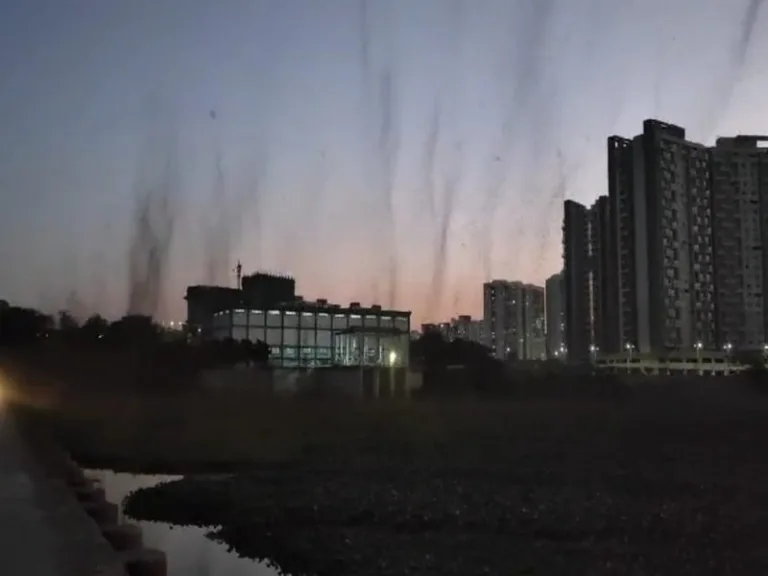Night time humidity, temp changes some key factors for mosquito tornado in Pune: Experts

Night time humidity, temp changes some key factors for mosquito tornado in Pune: Experts
According to scientists and entomologists, temperature swings and high humidity during the night may have contributed to the “mosquito tornado” that occurred in some areas of east Pune.
IMD data revealed that while some regions, like Pashan and Shivajinagar, have lower minimum temperatures, other regions, like Kharadi, Mundhwa, and Keshavnagar, have been recording nighttime temperatures between 18 and 21°C.
According to an entomologist in a city, most insects breed more when the temperature and humidity are favourable. Certain sites already have standing water, so adding the right amount of warmth and humidity there will help boost the mosquito population and its ability to reproduce.
According to a state health official, the swarms of mosquitoes seen in social media videos that have gone viral seem to be engaging in a common behaviour among these insects, where males dance to entice females. Pune has become a year-round mosquito breeding ground due to its high temperatures and humidity levels for a large portion of the year, regardless of the season.
According to an IMD scientist, the winter has been milder recently, with plenty of humidity and warmer nights. It is also known that these circumstances favour diseases spread by mosquitoes.
In fact, a recent health bulletin has issued a warning regarding the temperature thresholds for the transmission of dengue and malaria in Maharashtra, with a minimum temperature window of 16-19°C and a maximum threshold of 33-39°C. Parts of Pune have been experiencing these kinds of temperatures lately.
According to a recent study, mosquito survival and reproduction were found to be more favourable in environments with temperature fluctuations.










